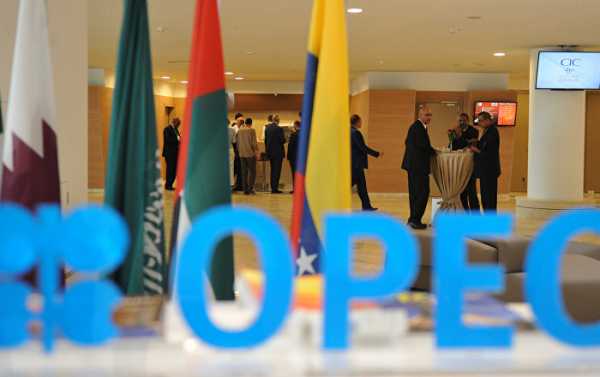
The Iranian representative to the Organization of the Petroleum Exporting Countries (OPEC) has accused Saudi Arabia and United Arab Emirates of taking Iran’s share of oil exports.
“Saudi Arabia and the UAE are turning OPEC into a tool for the US and consequently the organization has not much credit left,” Iran’s OPEC governor Hossein Kazempour Ardebili told Iran’s energy-centric Shana news agency Saturday.
The administration of US President Donald Trump is seeking to cut Tehran’s oil exports to zero as Washington introduces new sanctions on the nation after unilaterally abandoning the historic 2015 Iran Joint Cooperative Plan of Action (JCPOA) nuclear deal signed by Russia, China, Iran and several European states.
Earlier last month, Iran told OPEC that no member nation should take away another’s share of exports, after Saudi Arabia offered to pump more oil to compensate for the cutoff of Iranian oil sales by the US, the Middle East Eye reported.
In June, OPEC agreed to boost oil output by about one million barrels a day — a move strongly opposed by Iran.
As Washington introduces more sanctions against Tehran, the country’s primary oil buyers, China and India, distanced themselves from Iran, forcing Iranian oil output to its lowest point since 2016, according to data from International Energy Agency.
In an interview for Shana, Ardebili accused Saudi Arabia and Russia — the latter nation is not an OPEC member — of taking the oil market “hostage” by increasing oil output.
“Russia and Saudi Arabia claim they seek to balance the global oil market, but they are trying to take over a part of Iran’s share,” Ardebili said. “Trump’s efforts to cut Iran’s access to the global crude market has prompted Russia and Saudi Arabia to take hostage the oil market.”
Earlier in August, Ardebili said that Trump appeared to have been duped by Saudi Arabia into believing that the kingdom could replace Iranian barrels cut from the market.
“It seems President Trump has been taken hostage by Saudi Arabia and a few producers when they claimed they could replace 2.5 million barrels per day of Iranian exports, encouraging him to take action against Iran,” Ardebili was quoted by media sources in the country.
The Iranian OPEC representative lashed out at a 2017 agreement reached by the alliance, saying it had already failed, as some key producers — including Iraq, Algeria and Nigeria — were already violating the deal and producing much higher levels than had been agreed to in the deal.
These and other factors could easily lead to the Organization for Economic Cooperation and Development (OECD) stockpiling additional petroleum resources, something the 2017 OPEC deal sought to prevent, as the practice could quickly crash global oil prices, Ardebili said, cited by PressTV.
Sourse: sputniknews.com






